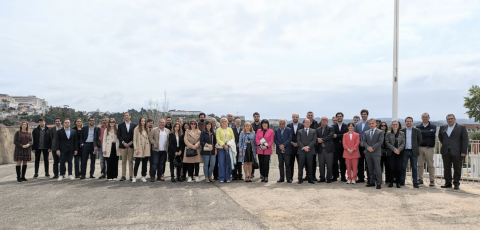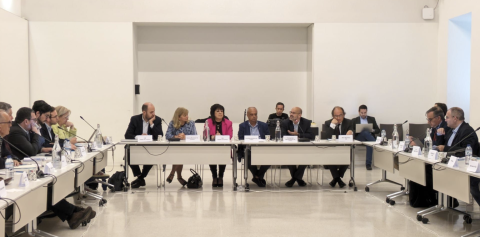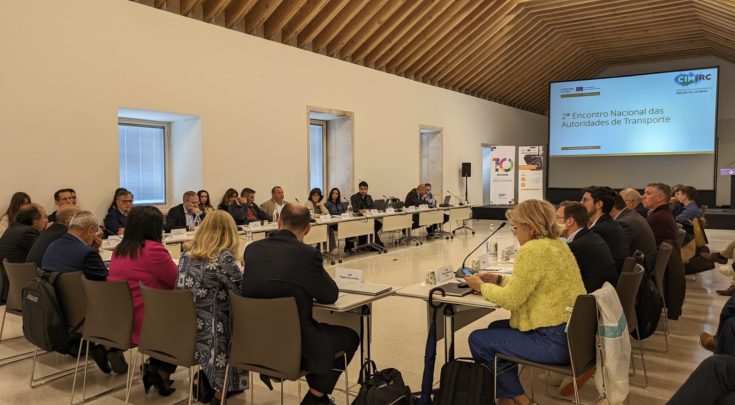3rd Regional Stakeholder Group Meeting in Centro Region
CIM-Coimbra Region organised the 3rd Regional Stakeholder Group Meeting (RSGM) in Centro Region on May 14, 2024, in Coimbra. The event brought together more than 50 representatives of transport authorities, public service operators, and researchers to discuss the current status and future needs for improving the urban and rural mobility services.
The full-day event began with a presentation of the Mondego Mobility System, and included a study visit to the site where the implementation work is taking place. The Mondego Mobility System (MMS) is one of the most scrutinized urban public transport projects in Portugal, and has been subject of constant improvement to meet ever-evolving mobility needs of the citizens within the municipality and from its vicinity adjacent areas. Containing two lines - the Lousã line and the Hospital line - this project kept the two lines initially planned, with a length of 42 kilometers, 12 in the urban and 30 in the suburban sections, and a total of 42 stops (33 on the Lousã line and 9 on the Hospital line). The major change to the initial project is the replacement of a project based on light rail with an electric bus system of the Bus Rapid Transit (BRT) type, in order to significantly reduce investment and operating costs, while maintaining service levels similar to those initially planned. It is scheduled to start operating at the beginning of 2025. The Mondego Mobility System will be the first BRT system in Portugal to connect urban and rural areas (Coimbra-Serpins). The technical visit enabled the other Transport Authorities, which are also carrying out initial studies, to understand the challenges and potential solutions needed to implement a service of this kind. It was an undoubtedly enriching knowledge sharing among the participants present at the RSGM.

During the afternoon, a more technical session focused on understanding the perspective of the National Transport Authorities regarding the difficulties in implementing short- and medium-term strategies for improving urban and rural connections and finding joint solutions that can potentially by thought at national level. Topics addressed in this session included:
- Systematizing the experience of Transport Authorities
- Ticketing systems
- Contract management
- Flexible transport.
The pressing issues on the agenda, which must be implemented under national legislation and which hinder the pursuit of competences and attributions in the medium term, were also discussed, namely with respect to:
- New cab legislation
- Free passes for young people and students
- Free passes for former war veterans.
It was a fruitful meeting where ideas and experiences were shared, strengthening the bonds of collaboration between all the entities involved and envisioned a more bright future for enhancing the mobility services.


